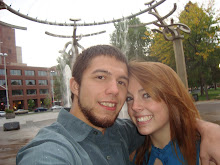"For My Daughter"
by Weldon Kees
Looking in to my daughter's eyes I read
Beneath the innocence of morning flesh
Concealed, hintings of death she does not heed.
Coldest of winds have blown this hair, and mesh
Of seaweed snarled these miniatures of hands;
The night's slow poison, tolerant and bland,
Has moved her blood. Parched years that I have seen
That may be hers appear: foul, lingering
Death in certain war, the slim legs green.
Or, fed on hate, she relishes the sting
Of other's agony; perhaps the cruel
Bride of syphilitic or a fool.
These speculations sour in the sun.
I have no daughter. I desire none.
1. How does the last line of this sonnet affect the meaning of the poem?
The last line of this poem really shows the bitterness and resentment the narrator feels toward having a daughter. This poem tells of how Kees imagines it being to have a sick or dying child. Until the last line we do not know that Kees is talking about a hypothetical daughter and not a real one. This really changes the effect of the whole poem because we are led to believe this is really happening then told it was just a thought. It makes us think twice about what it would be like to have an unhealthy child.
2. "For My Daughter" was first published in 1940. What considerations might a potential American parent have felt at that time? Are these historical concerns mirrored in the poem?
At this time in America having children was very unsafe for the mother's health and the child's. The hospitals and medicines were not what they are like today.Today's resources being very advanced and having access to different qualified doctors. If your child was born unhealthy chances were they would not survive because of the lack of knowledge that we have today. In this poem Kees imagines what the dread would feel like to have an unhealthy child. This was a very real concern when couples were deciding to have children in this time period.
3. Donald Justice has said that "Kees is one of the bitterest poets in history." Is bitterness the only attitude the speaker reveals in the poem?
This poem has many emotions and we do not see the bitterness until the end.The speaker of the poem really seems to want a child, but cannot seem to justify having a child if the chances of being unhealthy is high. We see sadness and a longing for a child from Kees.
Thursday, November 12, 2009
Subscribe to:
Post Comments (Atom)

thats awesome, thank you.
ReplyDelete